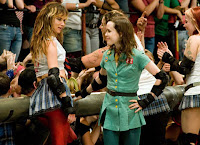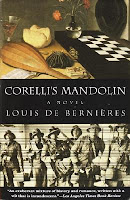 Over the past few days, I’ve been trying to synthesize my thoughts about Book Camp Vancouver into some cohesive post that captures everything that happened over the couple of days. Beyond the networking and the bookish talking, I met some really great people who seem to be just as passionate about dealing with the issues within our industry and moving forward. As a friend tweeted, we just want people to read books and figure everything else out as we go along. In my case, I don’t care where or how people are reading books, just that they are reading. In short order here are the talking points (some from my own session on Content Would be King and some that arose from others) that have consumed me in the wee hours of the morning as my body stubbornly refuses to adjust to West Coast time:
Over the past few days, I’ve been trying to synthesize my thoughts about Book Camp Vancouver into some cohesive post that captures everything that happened over the couple of days. Beyond the networking and the bookish talking, I met some really great people who seem to be just as passionate about dealing with the issues within our industry and moving forward. As a friend tweeted, we just want people to read books and figure everything else out as we go along. In my case, I don’t care where or how people are reading books, just that they are reading. In short order here are the talking points (some from my own session on Content Would be King and some that arose from others) that have consumed me in the wee hours of the morning as my body stubbornly refuses to adjust to West Coast time:
1. As an industry on the whole we need to start separating our selling tools, our B2B assets from the messages we’re sending out D2C. We can’t keep using the same messaging for both and expecting the consumer to be thrilled. The audiences are different. These differences are crucial to creating content both around authors and books. We need to imagine strategy and technique to talk to both camps effectively and accurately.
2. Everyone is so panicked about losing traditional book sales and the impending ebook revolution that they’re focusing all their energy in the wrong direction. We shouldn’t be sitting up complaining that the physical book is disappearing. Let’s move beyond the fear and decide to push in the direction of having our content available cross-platform. This isn’t revolutionary; it’s just common sense. In my session, when a woman held up a notebook and proclaimed her deep love and affection for the format, I held up my blackberry. It’s not one or the other. I read books, ebooks, web content, web books, and once we can figure out a way to have all of these devices talk to each other, we’ll be golden. From commute to bedtime, you’ll be able to enjoy the same content — just because we want more options doesn’t mean we want the book to go away. This is a common misconception that just means we do more and more arguing and defending one position against the other. How about we meet in the middle and find a solution?
3. The internet/online/digital is not marketing’s slushpile. It’s not something you should be doing just because you think you have to but because you think it has value. It also can’t be an afterthought. It has to have clean, concise and effective strategy behind it. It’s another argument I can’t believe we’re all still having. It’s cache (cash) — not cache (cash-shay). Traditional marketing has the cache; big full-page ads in the Globe and Mail are incredible, but they don’t have the cache — the sticky power of the internet to hold on to every bit of information that gets posted. We need to push the power of the cache and keep driving as much content as possible. Eventually we’ll get to conversion, which is what everyone wants.
4. We have a problem with revenue, not audience. This was revolutionary with me; it’s almost as if it freed my mind to accept the fact that the seismic shift needs to encompass new business models.
5. More and more the truly brilliant people I come into contact with, whether they work at the chain or for an independent bookstore, whether they’re readers, bloggers or writers, whether they’re in the press or starting up an online business, are open to saying good-bye, and in shocking ways, to the way things have always been done. Some of the most interesting conversations I had weren’t just about what wasn’t working but about what we can do within the confines of the business itself.
There’s so much more that I’m sure I’ll be talking about as the days go by and my brain keeps mulling over and over how to truly move forward in a way that gets everyone paid. Holler back your thoughts and let me know if I’m truly crazy or if you think, like I do, that we can get there too.







